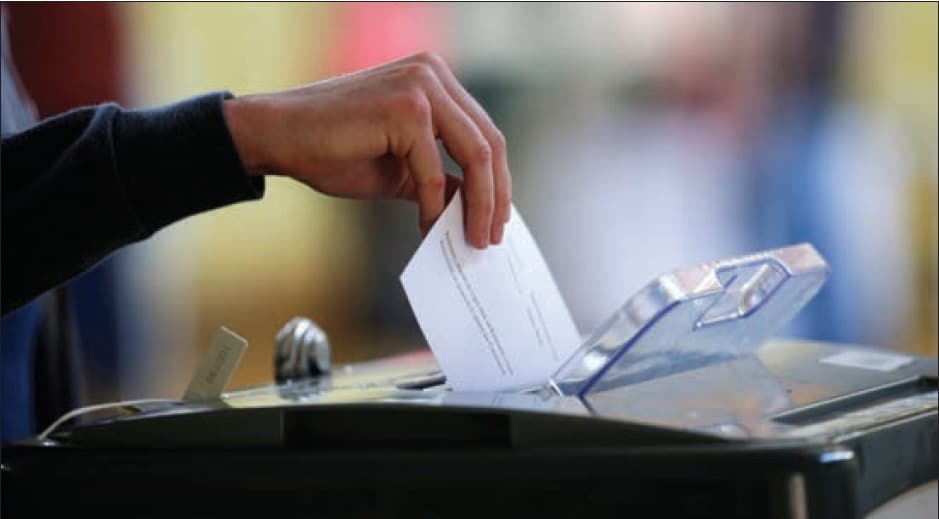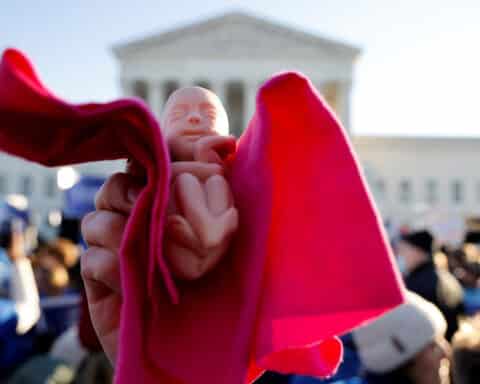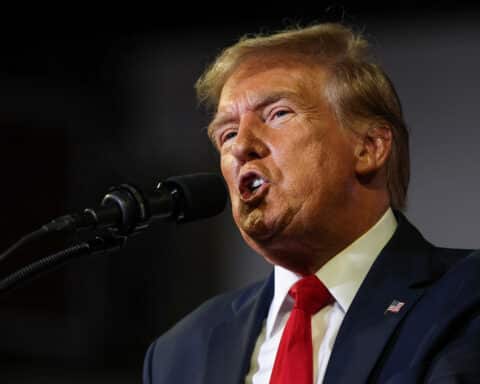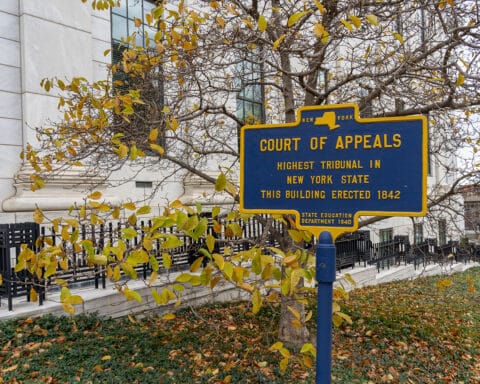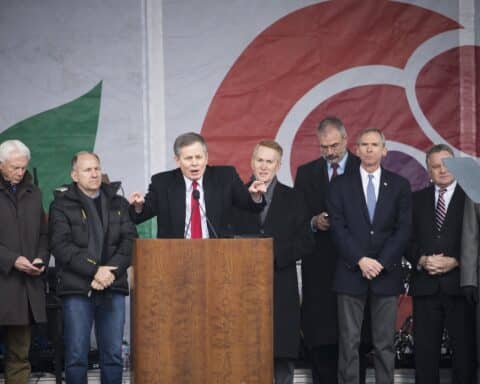Irish Prime Minister Leo Varadkar has described a May 25 vote paving the way for abortion on demand up to 12 weeks gestation as the “culmination of a quiet revolution.” Judging by the singing, dancing and general celebratory scenes when the results of the 2-to-1 defeat for the pro-life side were read out at Dublin Castle, there was nothing quiet about it, but the referendum is certainly revolutionary. It marks another watershed moment in the parting of ways between many Irish voters and the once all-powerful Catholic Church.
Church leaders
Much has changed since Msgr. Giovanni Battista Montini (later Pope Paul VI) told Irish government officials in 1946 that “you are the most Catholic country in the world!” Ireland currently is in the grip of the same tide of secularism that is affecting most of the Western world. Bowed by a combination of the dominant secular culture and scandal, the Church has struggled to find a voice. Bishops were largely absent from the public referendum debate, preferring to speak to Massgoers via pastoral letters and support lay voices in articulating the Catholic view on the sanctity of human life.
| From Catholic to Secular |
|---|
|
A number of milestones have marked the path of Ireland’s transformation from “the most Catholic country in the world” to May’s referendum on abortion:
1978: The government passes laws permitting the sale of contraceptives for the first time.
1995: A referendum passes by a narrow majority of less than one percent to legalise divorce.
2015: Ireland becomes the first country in the world to legalise same-sex marriage by way of a popular vote.
2018: Voters opt by a margin of 2-to-1 to remove legal protection for the unborn paving the way for abortion legislation.
|
The most senior churchman, Archbishop Eamon Martin, primate of All Ireland, said he was “very deeply saddened” by the fact that voters “appear to have obliterated the rights, including the right to life, of all unborn children from our Constitution and that the country now appears to be on the brink of legislating for a liberal abortion regime.” The constitutional provision — known as the Eighth Amendment — guaranteed the right to life of unborn children. It will now be deleted, and the government has pledged to legislate for abortion before the end of the year.
Archbishop Martin cites the referendum result as further evidence “that Ireland is now conforming to Western liberal democracy and therefore issues like abortion, same-sex civil partnerships and marriage, divorce — these are all attributes of a Western liberal democracy in which we live and we continue to try to witness to the Faith.”
Catholic vote
While most commentators were surprised by the scale of the defeat for the pro-life position, Church insiders have expressed disquiet that so many practising Catholics backed the repeal of the amendment. An exit poll conducted by the national broadcaster RTÉ revealed that 16 percent of those who voted “yes” also attended Mass at least once a week.
According to David Quinn, director of The Iona Institute and a prominent voice in the “no” campaign, “a Catholic who voted to repeal the amendment either doesn’t understand their own faith properly, or else comes to Mass as a form of spiritual succor and the contents of the specific faith of the specific Church they attend doesn’t matter all that much to them.
“They think they can call themselves ‘Catholic’ no matter what they think, do or say,” he told Our Sunday Visitor.
Archbishop Martin said that, while disappointing, it did not come as a surprise to him that some Massgoers voted “yes.”
“We’ve even heard people say ‘Look, I’m Catholic, but I don’t accept my Church’s position with regard to abortion or with regard to the sanctity of all human life from conception to natural death,'” he said.
He believes that Ireland can now be effectively split into three distinct groups when it comes to the Church. “We do have a very committed minority — a remnant so to speak — of people who are deeply committed to their Church and deeply convicted about the teachings of their Church.
“We also have a large group of people, and we know this from the Census, who are nominally or culturally Catholic who will self-identify as Catholic and who retain an affiliation with the Church in some ways but who have perhaps drifted away from regular practice of their faith and we need to engage with and speak with these people as well.
“And then there’s the third group of people in Ireland who have quite consciously rejected the Church and are indeed hostile to the teachings of the Church,” he said.
Moving forward
For Dominican Father John Harris, who spends most of his ministry working with young adults, the result “was no silent revolution, it was the biggest wake-up call ever given to the Church in Ireland and each one of us who claim to be Catholic must listen to it and take it very seriously.
“One thing is clear after last Friday’s vote; things can’t go on as before for the Church here in Ireland. Whatever we are doing simply isn’t working. The teaching of the Church on the sacredness of human life is not a periphery doctrine, and yet there are Catholics who simply ignored this doctrine and presume it’s business as usual,” he said.
Father Harris believes that “from the results it is clear that for lots of Catholics our faith is devoid of content. … For most Catholics the only time they receive any intellectual input into the development of their faith is the few minutes of the homily on a Sunday,” he said.
David Quinn believes it is essential that pro-life campaigners regroup and continue their fight. “It is now vitally necessary that the pro-life movement become a long-term dissenting voice in society, one that says we should not do away with unchosen burdens like an unplanned pregnancy.” He also believes that the Church “needs to do a far better job educating its members in the basics of their own faith because if so many were so willing to vote down the right to life of the unborn, then something has gone very badly wrong.”

